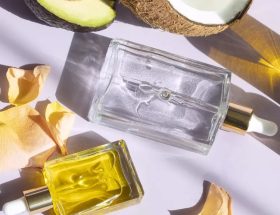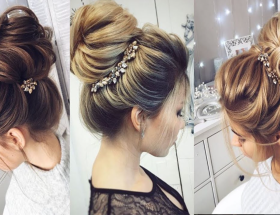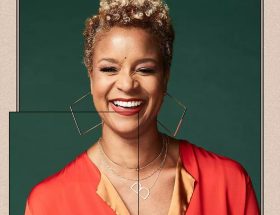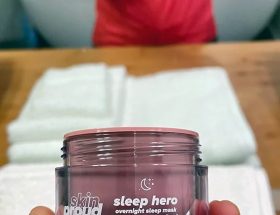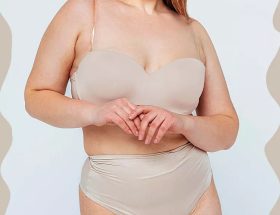How to Stop Picking Your Face Once and for All, According to Experts
when I was younger, I would pick my face. It wasn’t until around the time I was in college that I quit for good. I began seeing an aesthetician named Gohar for microdermabrasion to minimize the scars I had because of face picking and then I took preventive measures for the breakouts. This shifted my relationship with how I cared for my skin. But what I didn’t understand or think about was why I picked my face in the first place.
So on a beauty assignment at Dangene The Institute of Skinovation I told the esthetician that I couldn’t tell her why I did it. I explained that it didn’t fit my personality: I am type A, disgusted with germs (I’m that girl on a flight who used to sanitize the tray table—before we actually needed it), and hyper-aware of good hygiene and etiquette. She then told me that because of this aspiration for perfection, there was a sense of necessity and satisfaction to smooth skin immediately. At that moment, it all made sense.
Of course, my journey is different than others. To jump ahead, we spoke with New York licensed psychologist Sanam Hafeez and a board-certified dermatologist Michele Farber to understand the many reasons why people pick their faces.
MEET THE EXPERT
Michele Farber, MD is a board-certified dermatologist at the Schweiger Dermatology Group. Her expertise includes general, cosmetic, and skin cancer-related concerns.
Sanam Hafeez is a New York licensed psychologist specializing in behavioral and forensic psychology and a member of Byrdie’s Beauty & Wellness Review Board. Along with her practice, Hafeez teaches at Colombia University and runs CCPS to advocate for mental health and learning disabilities.
One reason you may occasionally skin pick or scratch is a healing wound or acne lesion. As they may feel itchy or painful, and it’s often a normal response to the irritation. Hafeez says it can even be satisfaction-driven. For instance, she explains some people claim to feel a touch of satisfaction when they spot a bump and have the itch to pop it on their own. Another common reason for picking is due to concentration. “Sometimes people pick while deeply focused on other tasks such as watching TV, reading, driving, or at their desks,” says Hafeez.
However, Farber says it can be associated with anxiety and OCD when people exhibit excessive picking, cause scars or infections from picking, spend a significant amount of time picking or feel compelled to remove skin imperfections. “Skin or hair picking/pulling is problematic when it becomes a source of stress or anxiety relief,” she says. Hafeez adds that we’re all prone to picking our faces. The biggest differentiator is the feelings associated with the habit. Although in many cases people may have significant acne, it is also common for people to scratch when there are very few lesions. A psychological disorder is associated with a compulsion to pick/pull that can cause significant disruption to one’s life.
01
Try Journaling
Instead of defaulting to picking your face as a coping mechanism, journaling every morning or night might help ease frustration and anxiety creeping their way into your headspace. If you don’t want to extend too much, try bullet journaling, a style of note-taking based on intention and productivity. It may give you clarity and keep you focused while stimulating creativity.
Keep a notebook, like Dingbats Earth Medium A5+ Hardcover Notebook, (it’s durable and perfect for bullet journaling due to its numbered micro-perforated pages) always next to your bedside and write your feelings, your daily events, or whatever comes to your mind.
02
Hide Your Mirror
Do as recommended by Hafeez and kick the bad habit of staring into a magnified mirror. While they’re great when we’re doing some makeup or at-home brow maintenance, these mirrors may reinforce picking by putting every “flaw” on display and inciting temptation. Also avoid spending too much time staring at the bathroom mirror, especially right after a hot shower.
03
See a Dermatologist
skincare products
MICHELA AMPOLO / UNSPLASH
Picking will likely delay the healing of acne lesions, make them look worse, and might result in new lesions from constant irritation. So treating acne or other underlying conditions is a component of treatment for skin or hair picking. “Enlist the help of a professional to help heal your skin and determine a healthy skincare regimen designed for your specific skin type and skin concerns,” says Hafeez.
04
Consider Therapy
For mental health, skin picking is often a sign of significant stress, depression, or anxiety that needs to be treated not only to help improve skin but also because this can cause a significant decline in one’s overall wellbeing.1??
“Consider therapy if the picking is leading to scarring and perhaps even is interfering with other aspects of life or if it leads to self-sabotaging thoughts, low self-worth, and even depression,” Hafeez says.
Many patients don’t seek help early enough or at all because they feel embarrassed. Don’t be! Your doctors are here to help with a range of solutions to help your skin and mental state.
05
Clip Your Nails
A surprising tip for not exacerbating your skin even more? Keeping your nails short. Try clipping or filing your nails every week to avoid using them for picking—it will be more of a challenge. It can be helpful especially in more mild cases or for the occasional picker.
“As you have shorter and cleaner nails, it also decreases the chances of infections that can precipitate skin flares,” says Farber.
06
Occupy Your Hands
Whether it’s something as simple as keeping a stress ball or Silly Putty by your desk or simply getting into the kitchen and making a batch of cookies or a loaf of bread, keeping your hands busy (and thus, off your face) is another great option if you’re trying to wean yourself off the habit of picking your face. Remember: if you make it a habit and be aware of where your hands are all the time, it will be easier to stop this pattern.
07
Meditate
black femme meditating on yoga mat
JUNO / STOCKSY
Meditation can be used to develop new habits and feelings, as well as reduce stress and anxiety and develop concentration.2 This practice can make you recognize and release thoughts that lead to anxiety. “Refocusing with healthier ways of redirecting energy can be adequate [to] break the habit of picking,” says Farber. Why not try a meditation app or an online class that best fits you?
08
Consider Medication
“It is important to make sure to address more significant underlying issues,” says Farber. Therapy and potential medication like anti-depressants for the psychological aspect can be life-changing. OTC supplements might also help. Rae’s DeStress Capsules contain Ashwagandha, a traditional herb in Indian, or Ayurvedic, medicine. In the group of adaptogens, this herb is used to regulate physical and emotional stresses in the body, reducing anxiety.3 Talk to your doctor before taking any medications or supplements.
09
Try Face Masks
While working or resting, a cream or sheet mask may work as a barrier making it harder to keep picking. Farber agrees that nourished skin minimizes irritation and lesions. After the damage is done, calming and soothing masks may also help fight irritation and inflammation. Dr. Jart+ Cicapair? Tiger Grass Cream is thick enough to stop our hands from picking and it has a lot of good reviews for treating redness, dry and sensitive skin.


